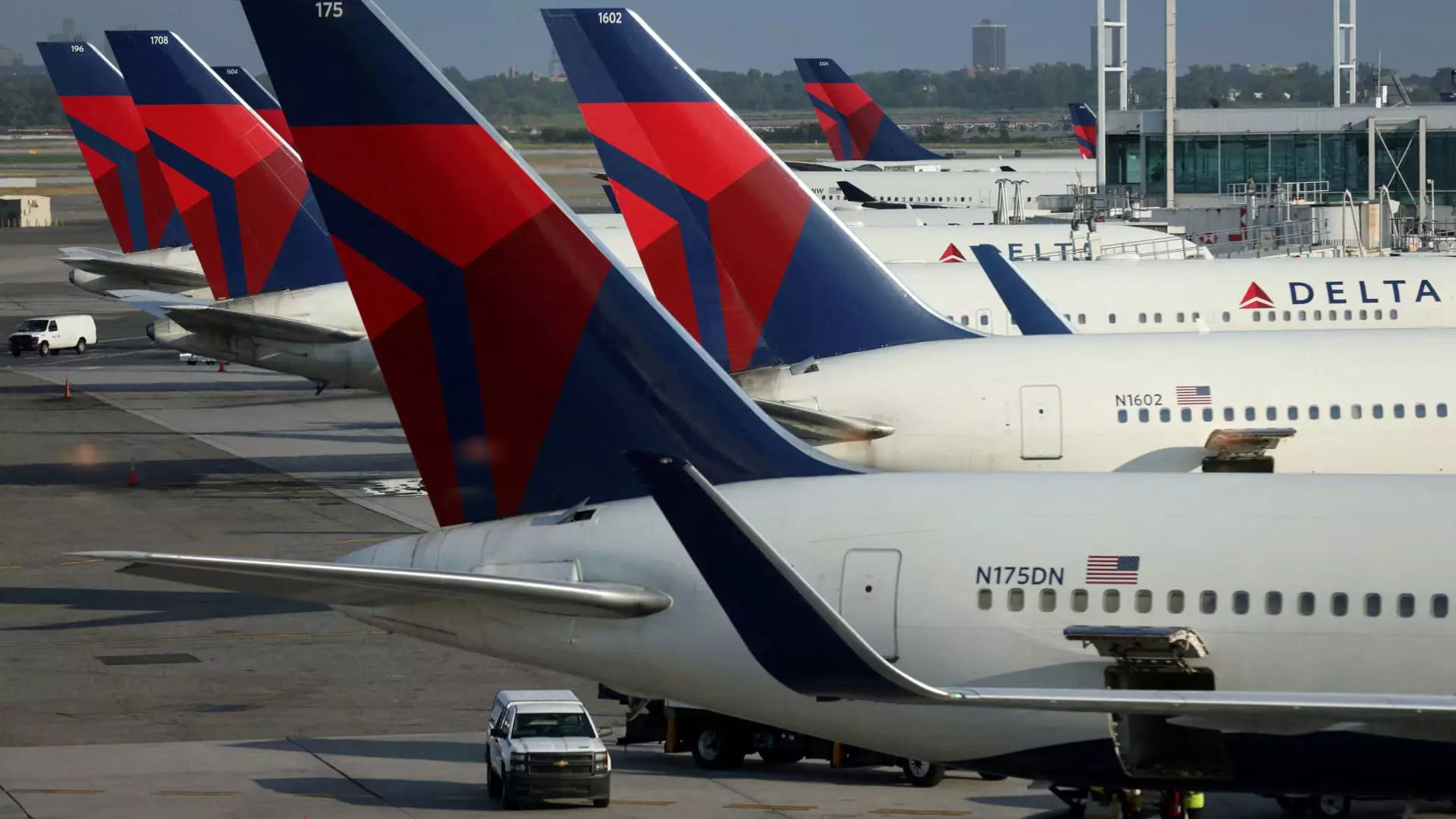In an unprecedented move, Delta Air Lines has initiated legal proceedings against cybersecurity firm CrowdStrike, following a significant outage in July that wreaked havoc on its operations. The incident not only paralyzed thousands of flights but also triggered a staggering financial impact, with Delta estimating losses at approximately $380 million in revenue along with an additional $170 million in incurred costs. The malfunction stemmed from a problematic software update designed for Windows operating systems used across Delta’s vast network, leading to chaos that saw 7,000 flights canceled.
Filed in a Georgia court, Delta’s lawsuit accuses CrowdStrike of both contract breach and negligence, emphasizing the critical role that effective software testing plays in avoiding such catastrophic failures. According to the complaint, Delta alleges that CrowdStrike engaged in reckless behavior by cutting corners and bypassing essential testing protocols that were guaranteed in their operational agreements. The airline starkly noted, “If CrowdStrike had tested the Faulty Update on even one computer before deployment, the computer would have crashed,” which underscores the far-reaching consequences of this negligence.
Internal Impact and Competitive Comparison
While Delta struggled to regain stability post-crisis, other airlines reportedly managed to recover more swiftly from similar disruptions. This disparity not only raises questions about Delta’s internal crisis management strategies but also indicates a potential misalignment of expectations in their vendor relationships. By highlighting its struggles in comparison to competitors, Delta’s leadership aims to emphasize the urgency and gravity of its claims against CrowdStrike.
Delta further contended that the fault in CrowdStrike’s Falcon software resulted in the creation of an unauthorized access point within the Windows systems, which Delta claims would have never been permitted under normal operational standards. Delta’s CEO, Ed Bastian, was quoted expressing the dire need for accountability, stating, “The havoc that was created deserves, in my opinion, to be fully compensated for.” His statement reflects the broader corporate sentiment that thorough vendor accountability is essential in safeguarding operational integrity.
Future Implications for Cybersecurity Practices
In the wake of this lawsuit, CrowdStrike has expressed regret over the incident, with CEO George Kurtz publicly apologizing and committing to improvements in the company’s procedures to prevent similar occurrences. Additionally, the cybersecurity firm recognized the financial ramifications of the outage, subsequently reducing its full-year guidance due to commitments tied to the fallout. This incident serves as a cautionary tale for other entities reliant on third-party cybersecurity vendors, emphasizing the critical importance of rigorous testing and accountability in software deployments.
As Delta Air Lines and CrowdStrike navigate this complex legal landscape, the case highlights pressing issues surrounding corporate responsibility in technology deployment and the ripple effects such outages can have on global operations. The outcome of this lawsuit may shape future interactions between corporations and their technology providers, prompting a reevaluation of risk management strategies in the age of digital reliance.

